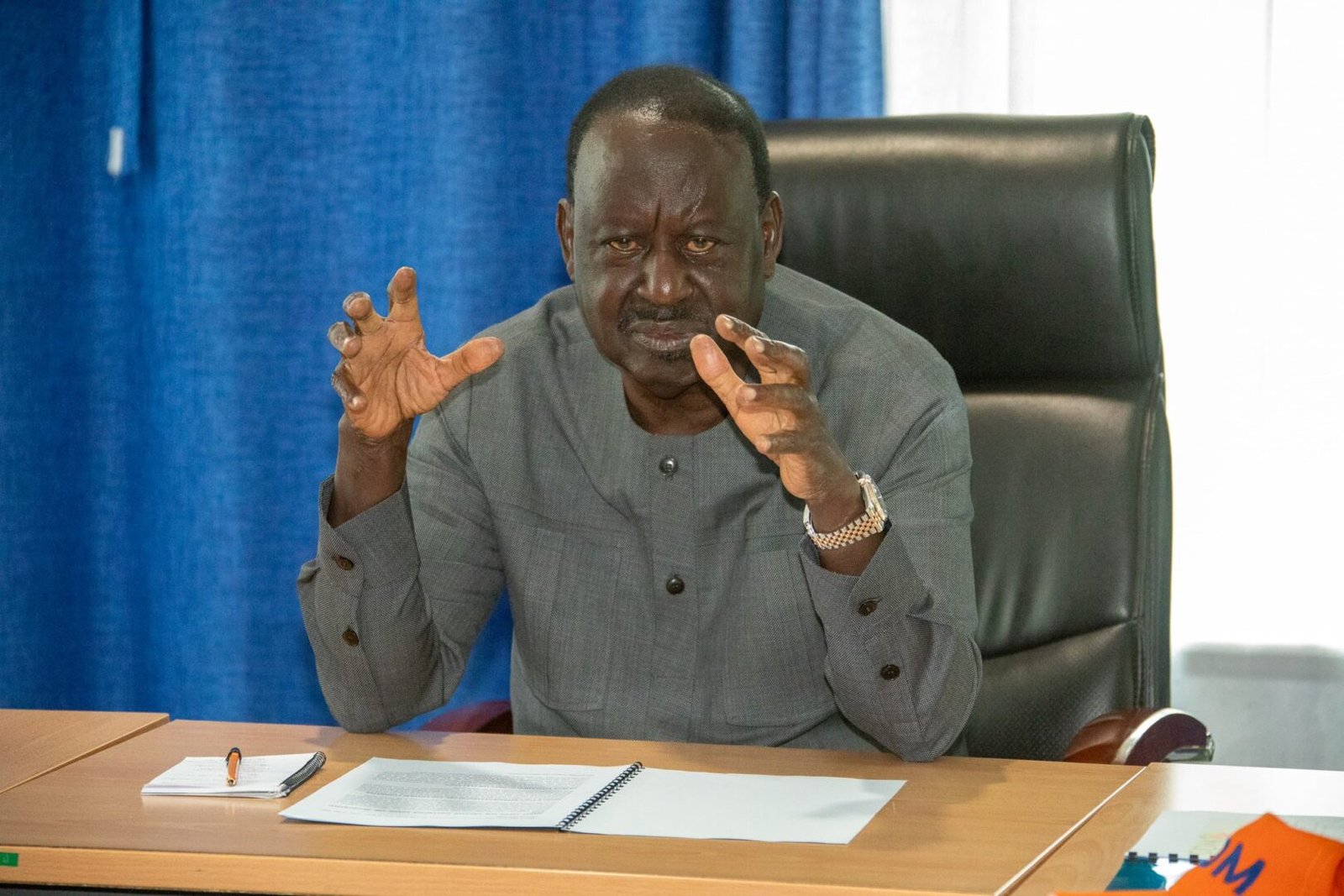NAIROBI, Kenya — Orange Democratic Movement (ODM) party leader Raila Odinga has issued a call for Kenyans to converge at Kamukunji Grounds in Nairobi on Monday, July 7, to commemorate the anniversary of the historic Saba Saba protests.
Addressing the press on Sunday, the seasoned opposition politician asserted that the core ideals of the original movement remain unfulfilled in contemporary Kenya.
Mr Odinga contended that the nation continues to grapple with many of the same challenges that ignited the first Saba Saba protests in 1990, including severe economic hardships and persistent human rights violations.
“We have not achieved what Saba Saba intended,” he stated. “Violation of human rights is still a challenge in the country, police brutality is there, and the economy has not performed as we expected. Saba Saba was meant to bring people together for a common cause: change.”
The ODM leader confirmed his personal attendance at Kamukunji, the very grounds where pro-democracy activists gathered 35 years ago to demand multiparty democracy in defiance of then-President Daniel Moi’s authoritarian regime.
“My idea is to call the people and go to Kamukunji, the first place where Saba Saba took place. I will be attending the Saba Saba at Kamukunji to remember those who were killed,” Mr Odinga told reporters.
His call for protests comes amid a period where he has notably not been seen aligning with other prominent opposition politicians, a perceived shift attributed to his recent alliance with President William Ruto.
The Saba Saba movement, named after the date July 7, holds a deeply symbolic position in Kenya’s democratic history. The 1990 protests saw Kenyans bravely take to the streets to advocate for multiparty democracy, ultimately leading to the repeal of Section 2A of the constitution, which had previously cemented Kenya as a one-party state under Moi’s Kenya African National Union (KANU) regime.
Though the 1990 protests were met with violent suppression, they were instrumental in paving the way for significant political reforms and the eventual reintroduction of multiparty elections.
This year’s anniversary arrives amidst escalating public discontent against President Ruto’s administration, primarily fueled by the soaring cost of living and a series of police crackdowns on government critics and street protests, many of which have tragically resulted in deaths and injuries.
Also Read: Saba Saba protests: Kenya braces for fresh demonstrations on July 7
In anticipation of potential disruptions, similar to those witnessed during recent demonstrations against police brutality and extrajudicial killings, many learning institutions in towns and cities have advised students to remain home on Monday and resume classes on Tuesday.
Furthermore, concerns have been raised about the reported deployment of ‘goons’—individuals armed with whips and clubs—to attack protesters, loot, and vandalize property during recent demonstrations, in addition to police action.
Despite these concerns, the government has issued a stern warning to civil servants against absenteeism on Monday. Public Service Cabinet Secretary Geoffrey Ruku stated on Sunday that Saba Saba is not a public holiday and that all public servants are expected to report to their duty stations on time.
Ruku confirmed he would personally conduct spot checks across government offices and cautioned that disciplinary action would be taken against those who fail to report. “Anyone who fails to report will have to produce a show-cause letter,” he emphasized.

